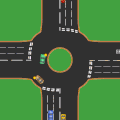The United Kingdom Portal
 |
 |
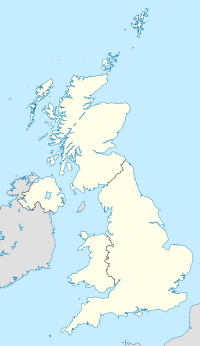
| |
The United Kingdom of Great Britain and Northern Ireland, commonly known as the United Kingdom (UK) or Britain, is a country in Northwestern Europe, off the coast of the continental mainland. It comprises England, Scotland, Wales, and Northern Ireland. The UK includes the island of Great Britain, the north-eastern part of the island of Ireland, and most of the smaller islands within the British Isles, making up a total area of 94,354 square miles (244,376 km2). Northern Ireland shares a land border with the Republic of Ireland; otherwise, the United Kingdom is surrounded by the Atlantic Ocean, the North Sea, the English Channel, the Celtic Sea, and the Irish Sea. The United Kingdom had an estimated population of over 68.2 million people in 2023. The capital and largest city of both England and the United Kingdom is London, whose wider metropolitan area is the largest in Western Europe, with a population of 14.9 million. The cities of Edinburgh, Cardiff, and Belfast are the national capitals of Scotland, Wales, and Northern Ireland, respectively.
The lands of the UK have been inhabited continuously since the Neolithic. In AD 43, the Roman conquest of Britain began; the Roman departure was followed by Anglo-Saxon settlement. In 1066, the Normans conquered England. With the end of the Wars of the Roses, the English state stabilised and began to grow in power, resulting by the 16th century in the annexation of Wales, the domination of Scotland, and the establishment of the British Empire. Over the course of the 17th century, the role of the British monarchy was reduced, particularly as a result of the English Civil War. In 1707, the Kingdom of England and the Kingdom of Scotland united under the Treaty of Union to create the Kingdom of Great Britain. The Acts of Union 1800 incorporated the Kingdom of Ireland to create the United Kingdom of Great Britain and Ireland in 1801. Most of Ireland seceded from the UK in 1922 as the Irish Free State, and the Royal and Parliamentary Titles Act 1927 created the present United Kingdom.
The UK became the first industrialised country and was the world's foremost power for the majority of the 19th and early 20th centuries, particularly during the "Pax Britannica" between 1815 and 1914. The British Empire was the leading economic power for most of the 19th century, a position supported by its agricultural prosperity, its role as a dominant trading nation, a massive industrial capacity, significant technological achievements, and the rise of 19th-century London as the world's principal financial centre. At its height in the 1920s, the British Empire encompassed almost a quarter of the world's landmass and population, and was the largest empire in history. However, its involvement in the First World War and the Second World War damaged Britain's economic power and a global wave of decolonisation led to the independence of most British colonies. (Full article...)
Featured article
The Battle of Ramillies was a major engagement of the War of the Spanish Succession fought on 23 May, 1706. 1706 had begun well for Louis XIV's generals who gained early success in Italy and in Alsace. Louis now pressed Marshal Villeroi to seek out Marlborough and bring the Allies to battle in the Spanish Netherlands. Accordingly, the French marshal set off from Louvain at the head of 60,000 men, and provocatively marched towards Léau. Marlborough, also determined to fight a major engagement, assembled his forces – some 62,000 men – near Maastricht, before advancing towards the Mehaigne River and the plain of Ramillies. But the French had forestalled the Allies, and Marlborough's advance party found the location already occupied. Nevertheless, the Duke decided to attack at once. In less than four hours, Villeroi's army was utterly defeated. Marlborough's subtle moves and changes in emphasis during the battle – something the French and Bavarian commanders failed to realize until it was too late – caught his foe between the jaws of a tactical vice. The Franco-Bavarian army broke and ran en masse, losing in total over 20,000 casualties. With Prince Eugéne's subsequent success at Turin in northern Italy, the Allies had imposed the greatest loss of territory and resources Louis XIV would suffer during the war. Town after town – including Brussels, Bruges and Antwerp – fell to Marlborough's forces; by the end of the campaign, the Franco-Spanish army had been driven from most of the Spanish Netherlands. (Full article...)
Featured biography
Ceawlin was a King of Wessex. He may have been the son of Cynric of Wessex and the grandson of Cerdic of Wessex, whom the Anglo-Saxon Chronicle represents as the leader of the first group of Saxons to come to the land which later became Wessex. Ceawlin was active at a time when the Anglo-Saxon invasion was being completed; by the time he died, little of southern England remained in the control of the native Britons. The chronology of Ceawlin's life is highly uncertain: his reign is variously listed as lasting seven, seventeen, or thirty-two years, and the historical accuracy and dating of many of the events in the later Anglo-Saxon Chronicle have been called into question. The Chronicle records several battles of Ceawlin's between the years 556 and 592, including the first record of a battle between different groups of Anglo-Saxons, and indicates that under Ceawlin Wessex acquired significant territory, some of which was later to be lost to other Anglo-Saxon kingdoms. Ceawlin is also named as one of the eight "bretwaldas": this was a title given in the Chronicle to eight rulers who had overlordship over southern Britain, although the actual extent of Ceawlin’s control is not known. Ceawlin died in 593, having been deposed the year before, possibly by his successor, Ceol. He is recorded in various sources as having two sons, Cutha and Cuthwine, but the genealogies in which this information is found are known to be unreliable. (Full article...)
General images -
Subportals
WikiProjects
Things you can do
- Visit the British Wikipedians' notice board.
- The noticeboard is the central forum for information and discussion on editing related to the United Kingdom.
- Comment at the British deletion sorting page.
- This page lists deletion discussions on topics relating to the United Kingdom.
Featured pictures
Did you know -

- ... that by losing her constituency of South West Norfolk in 2024, Liz Truss became the first former UK prime minister since 1935 to lose their seat?
- ... that David P. Davies was the chief test pilot for the United Kingdom's Civil Aviation Authority for 33 years?
- ... that, before same-sex unions were legally recognised in the UK, the London Partnership Register allowed nearly 1,000 couples to celebrate their relationships?
- ... that Ed Miliband retweeted "Chaos with Ed Miliband" with a clown emoji during the October 2022 United Kingdom government crisis?
- ... that Youlgreave in Derbyshire is one of only a few villages in the United Kingdom to be supplied by its own private waterworks?
- ... that New Zealand composer Maewa Kaihau sold her rights to the song "Now is the Hour" for £10, a decade before it became a hit in the United Kingdom and United States?
In the news
- 19 December 2024 – Russian invasion of Ukraine
- Military aids during the Russian invasion of Ukraine, United Kingdom and the Russian invasion of Ukraine
- 19 December 2024 – Georgia–United Kingdom relations, Georgia–United States relations, 2024 Georgian post-election protests
- The United Kingdom and the United States impose sanctions on Georgian officials, including Interior Minister Vakhtang Gomelauri, in response to alleged violent crackdowns on pro-European protests. (EFE)
- 18 December 2024 – Legal affairs of the Tate brothers
- The Westminster Magistrates' Court rules that British police may seize £2.2 million (US$2.5 million) from influencer Andrew Tate and his brother Tristan for allegedly failing to pay taxes on profits from their online ventures. (DW)
- 15 December 2024 – Free trade agreements of the United Kingdom
- The United Kingdom joins the Comprehensive and Progressive Agreement for Trans-Pacific Partnership, becoming the 12th member and the first European member. (Reuters)
- 11 December 2024 – 2024 United Kingdom farmers' protests
- Hundreds of tractors block Whitehall in protest of Labour government changes to agricultural inheritance tax. (The Independent)
- 7 December 2024 – 2024–25 European windstorm season
- Two people are killed by falling trees in England and more than 1.5 million people experience power outages in Ireland and the United Kingdom as Storm Darragh hits the British Isles. (BBC News) (Sky News)
Categories
Other UK-connected Wikipedias
Wikimedia
The following Wikimedia Foundation sister projects provide more on this subject:
-
Commons
Free media repository -
Wikibooks
Free textbooks and manuals -
Wikidata
Free knowledge base -
Wikinews
Free-content news -
Wikiquote
Collection of quotations -
Wikisource
Free-content library -
Wikiversity
Free learning tools -
Wikivoyage
Free travel guide -
Wiktionary
Dictionary and thesaurus









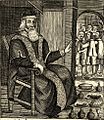
































































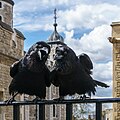



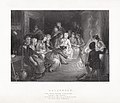










![Image 12 George IV Artist: Sir Thomas Lawrence An oil on canvas portrait of George IV of the United Kingdom as the Prince Regent, by Sir Thomas Lawrence. In 1814, Lord Stewart, who had been appointed ambassador in Vienna and was a previous client of Thomas Lawrence, wanted to commission a portrait by him of the Prince Regent. He arranged that Lawrence should be presented to the Prince Regent at a levée. Soon after, the Prince visited Lawrence at his studio in Russell Square. Lawrence wrote to his brother that: To crown this honour, [he] engag'd to sit to me at one today and after a successful sitting of two hours, has just left me and comes again tomorrow and the next day. More featured pictures](http://up.wiki.x.io/wikipedia/commons/thumb/9/9f/George_IV_bust1.jpg/84px-George_IV_bust1.jpg)

